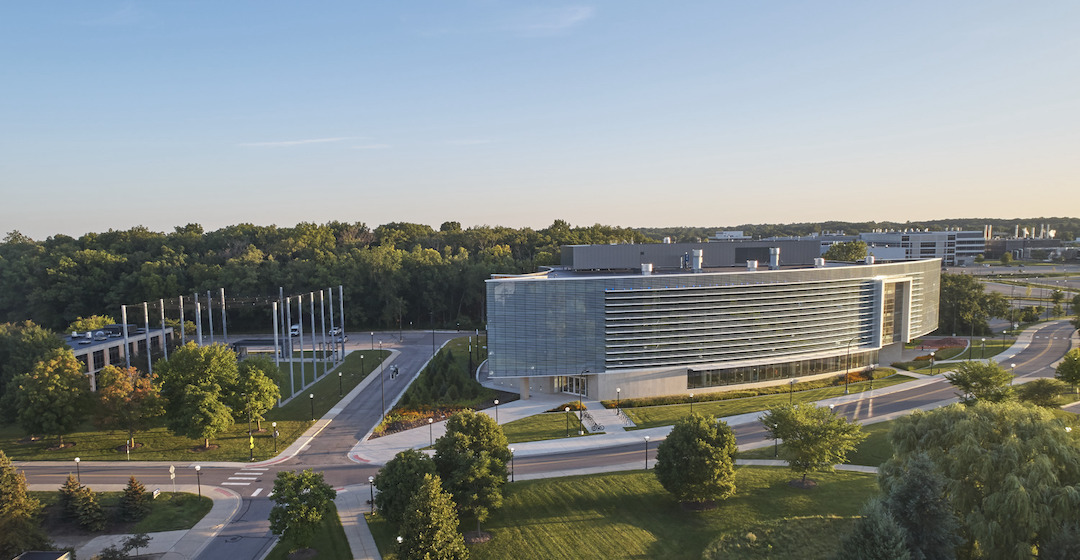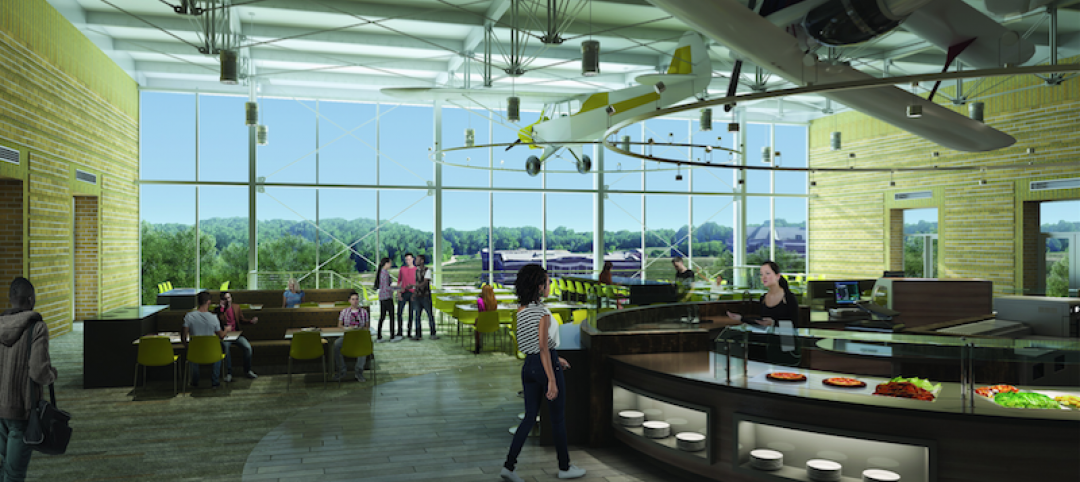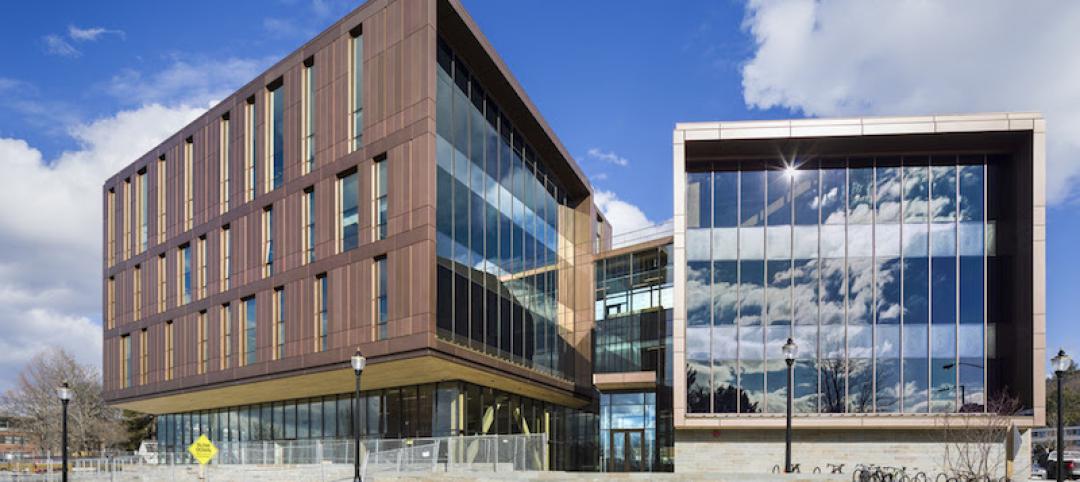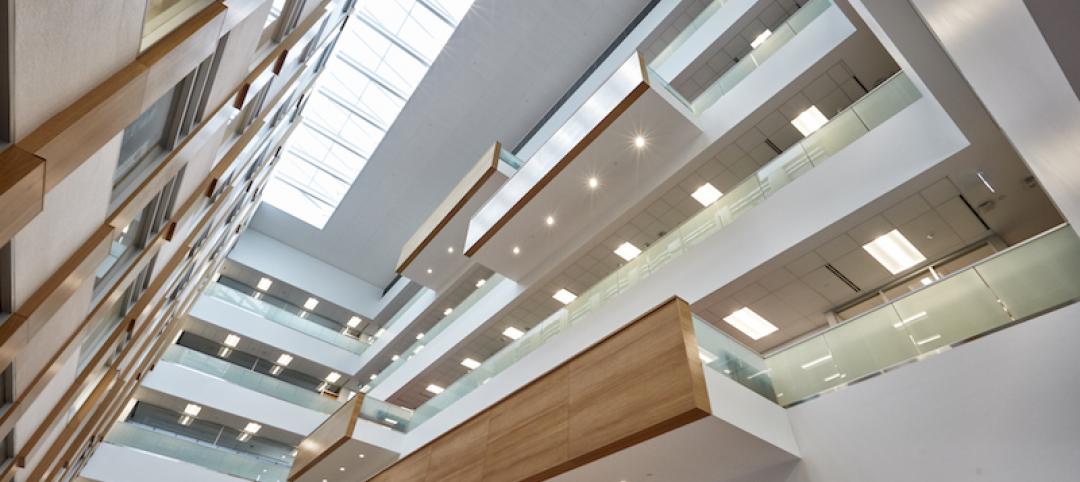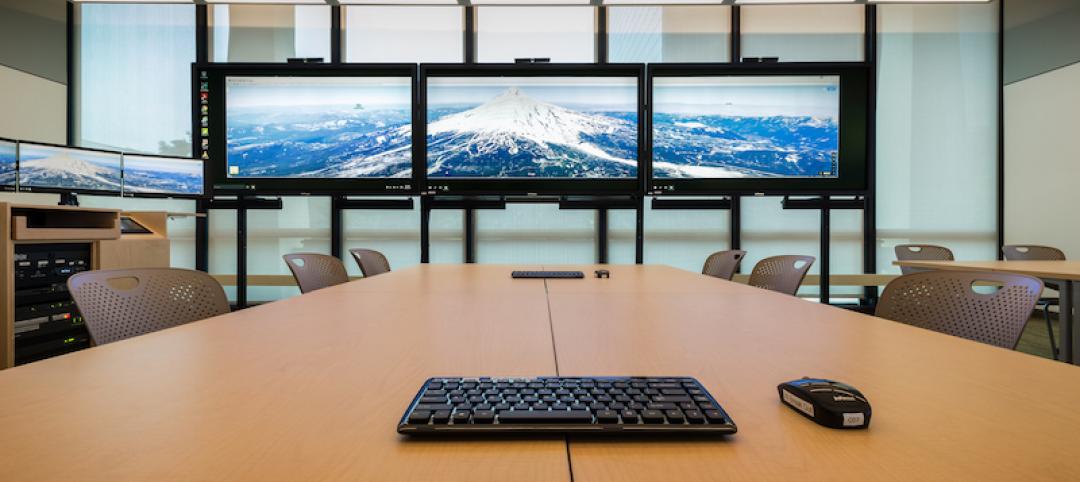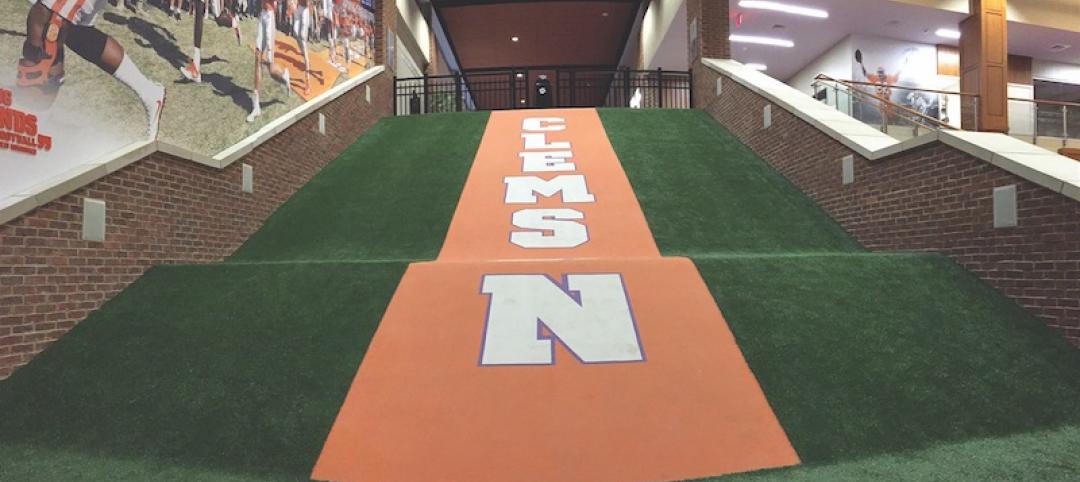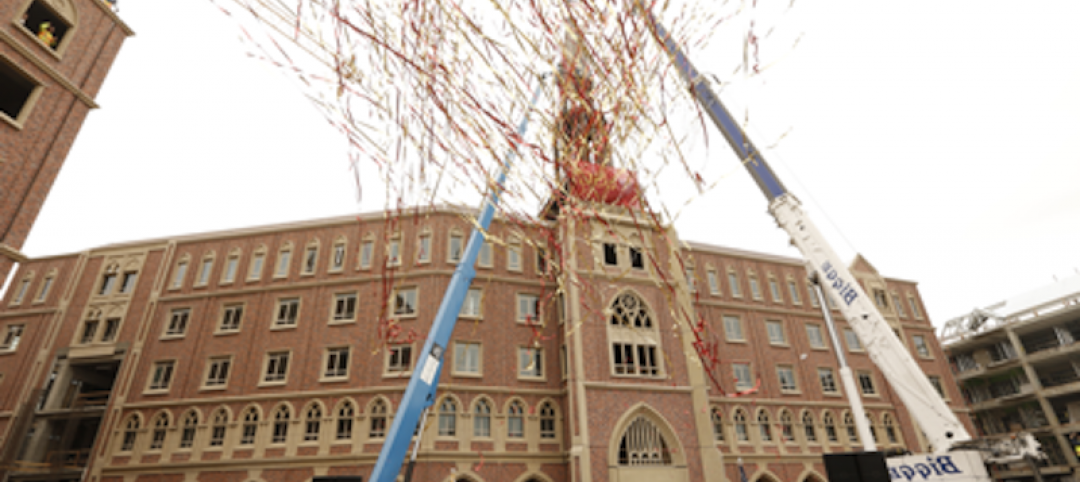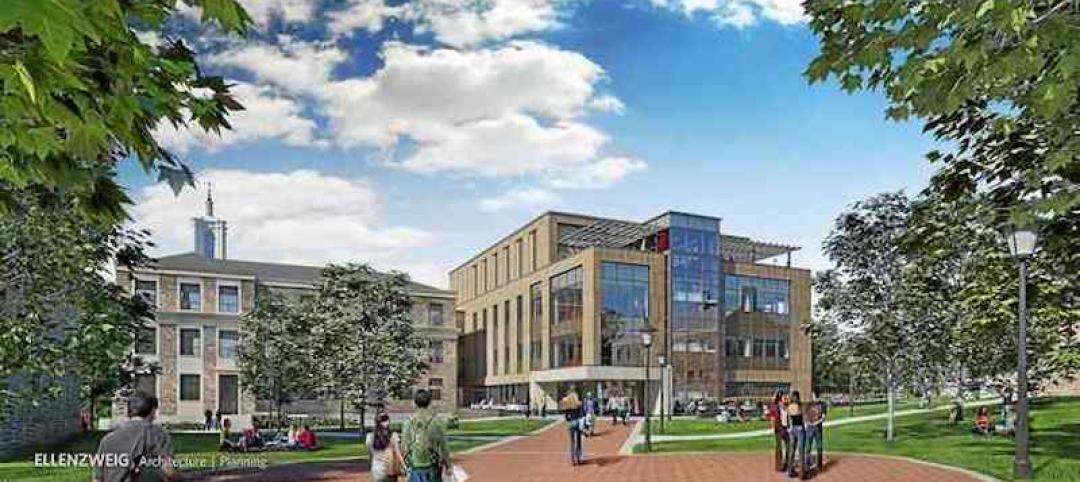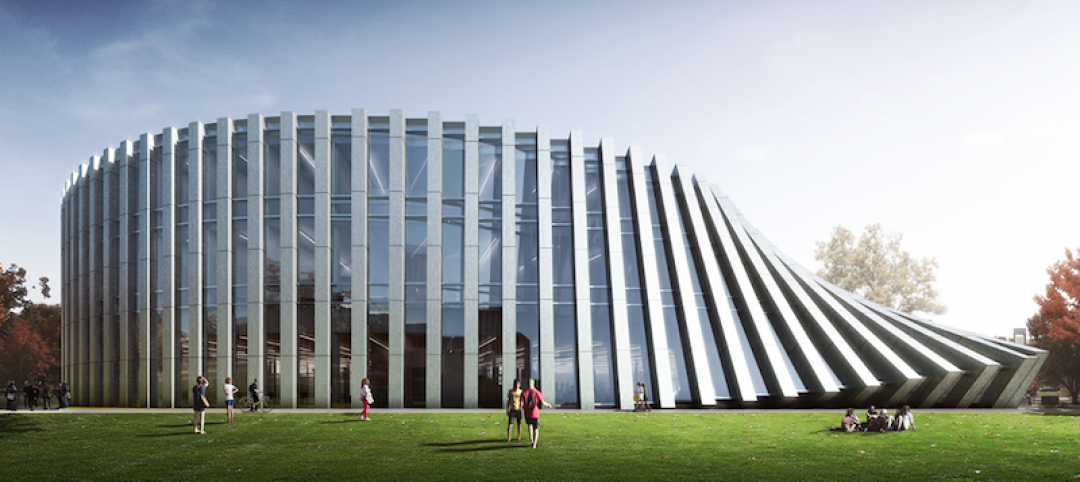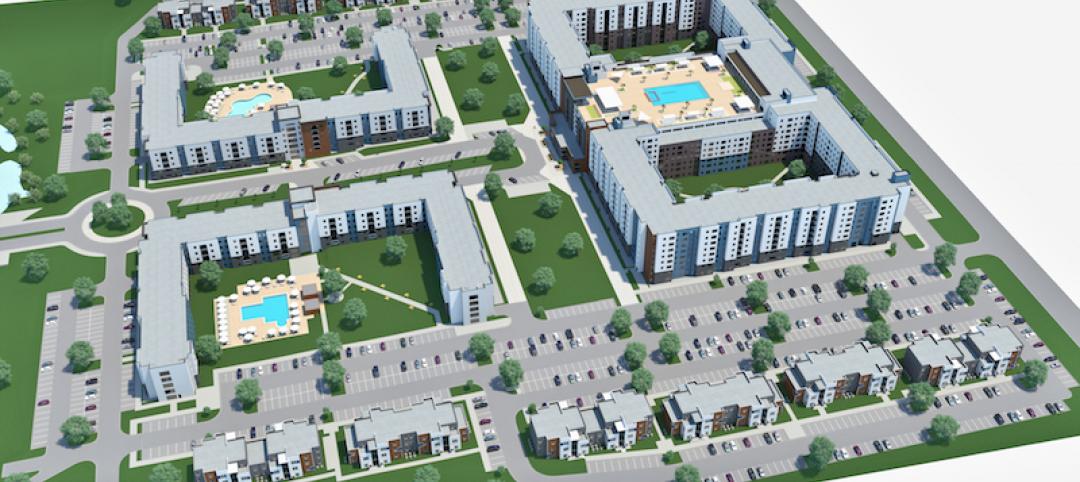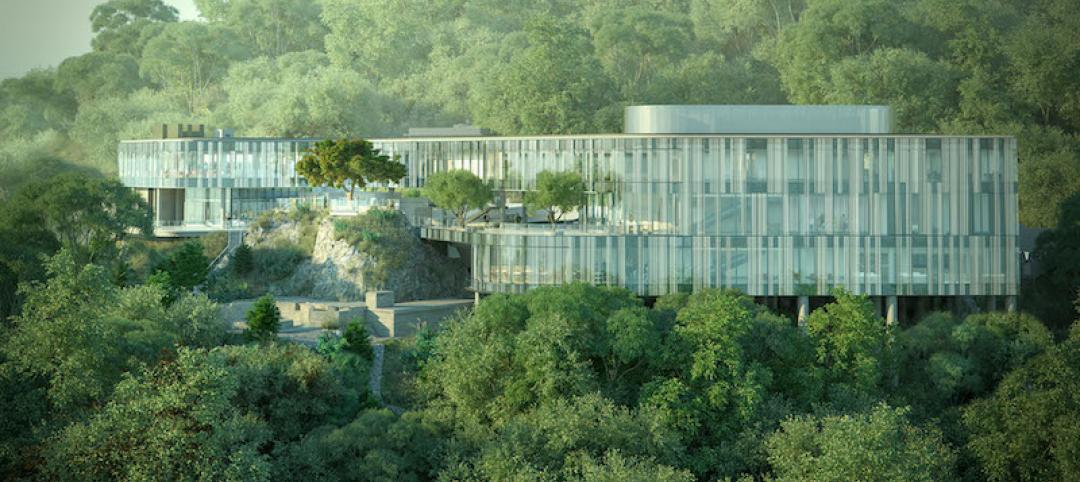The Ford Robotics Building has completed and opened on the University of Michigan (U-M) campus. The $75 million project represents a singular new home for the university’s relationship with Ford and acts as a showcase for robotics research, cross disciplinary collaboration, and innovative industry/education collaboration.
Located on the University of Michigan North Campus, the building anchors the west end of a Michigan Avenue mobility testbed that begins in Detroits Corktown neighborhood and runs through Dearborn to Ann Arbor. The four-story, 134,000-sf project is an interdisciplinary center for mathematics, engineering, and computer programming faculty and researchers. The facility will be home to researchers that were previously spread across 23 separate buildings and is also the first robotics facility to co-locate an industry team (Ford’s mobility research center) with a university’s robotics leadership.
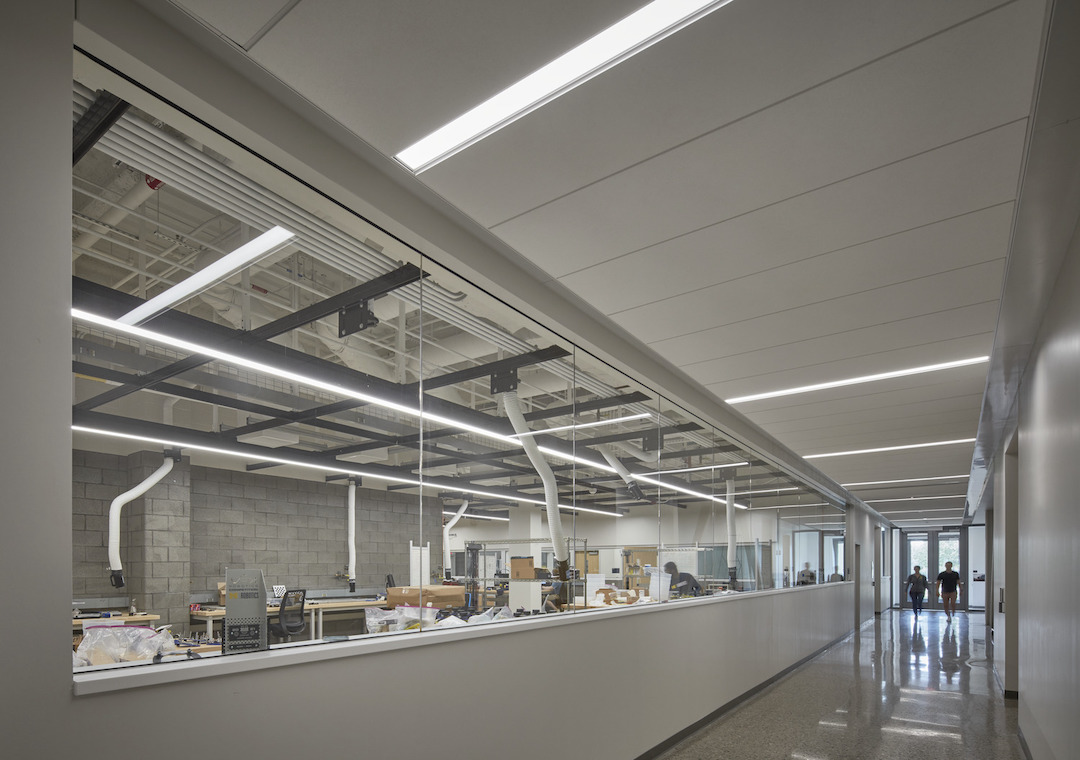
HED, in an effort to reflect a robotics program incorporates both theory and making, designed the building to appear both extroverted and enclosed simultaneously. From the outside, the most striking feature is the glass-clad facade that curves along Hayward Street. Composed of large bands of fritted glass with 30-inch-deep sunshades spaced 42 inches apart, the south-oriented glass wall allows diffused daylight deep into the building interior. The facade also allows visitors to see the activities occurring within.
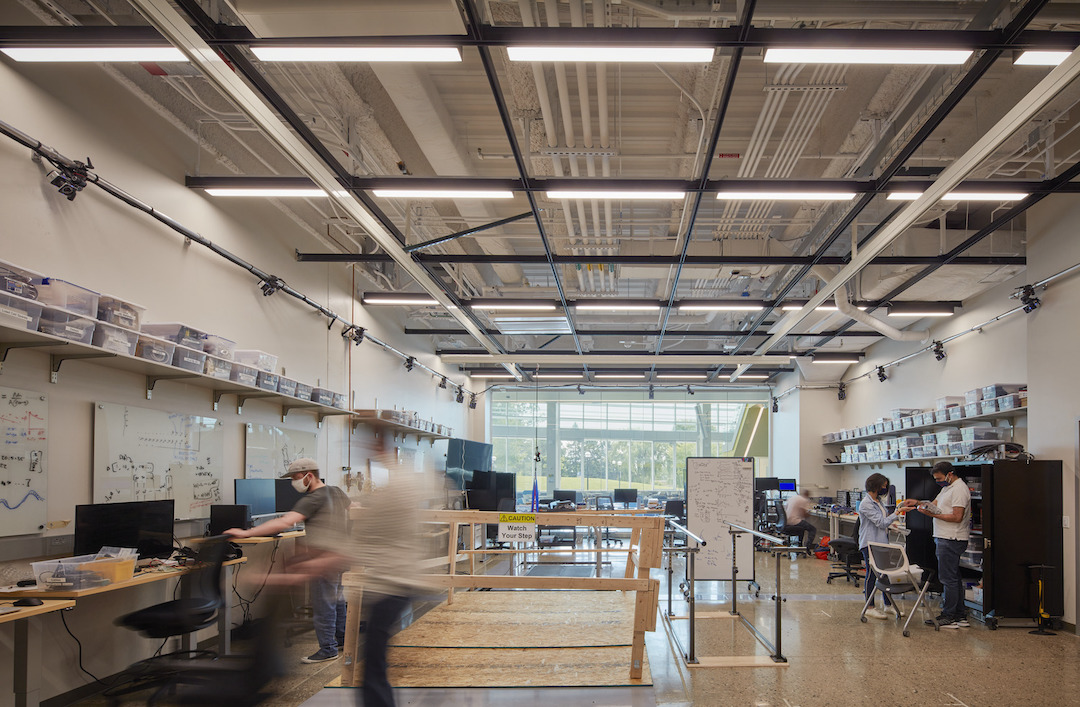
Upon entry, visitors arrive within a four-story atrium defined on one side by the curved smooth-facing glass wall and balconies for the top three floors. The atrium is designed for a wide variety of uses and special events with a cafe, large-scale video screen, and a sophisticated sound system. The atrium is heated through displacement ventilation. Researchers all enter the labs via a shared team collaboration space, ensuring chance encounters, interaction, and collaboration between them.
HED designed the Ford Robotics Building to promote proximity and spontaneous interaction between students, faculty, researchers, and visiting industry professionals. The building includes the new hub of the U-M Robotics Institute on the first three floors and Ford’s robotic and mobility research lab on the fourth floor.
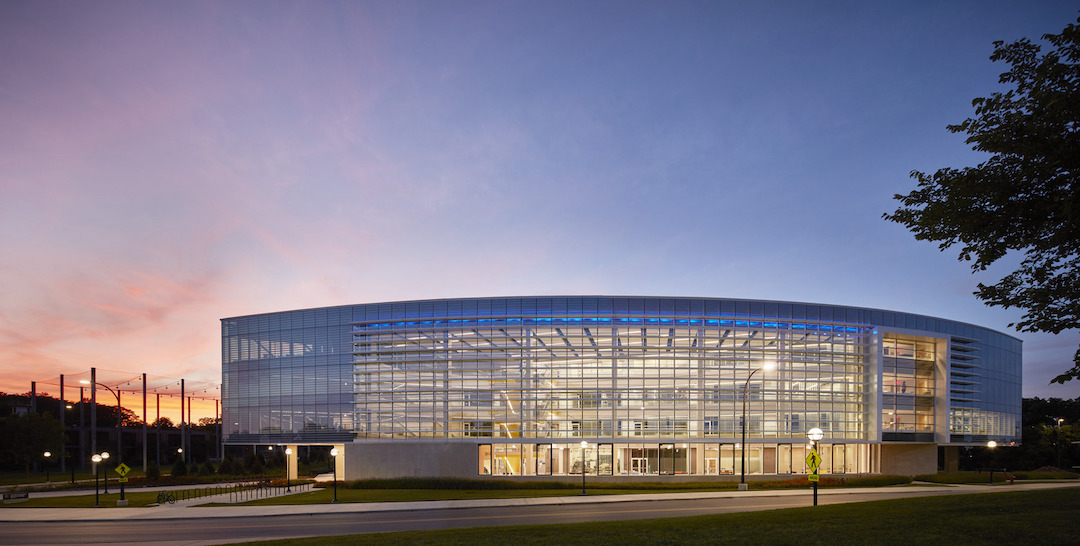
The custom U-M research labs are designed for robots that fly, walk, roll, and augment the human body. Multiple labs are incorporated within the building, including the Ronald D. And Regina C. McNeil Walking Robotics Laboratory for developing and testing legged robots. This specific lab has an in-ground treadmill that can hit 31 mph and a 20% grade, as well as carry obstacles to test walking robots that could aid in disaster relief and lead to better prosthetics and exoskeletons. A rehabilitation lab is designed for advanced prosthetics and robotic controls with a movable “earthquake platform” that can tilt in any direction while force-feedback plates measure ground contact.
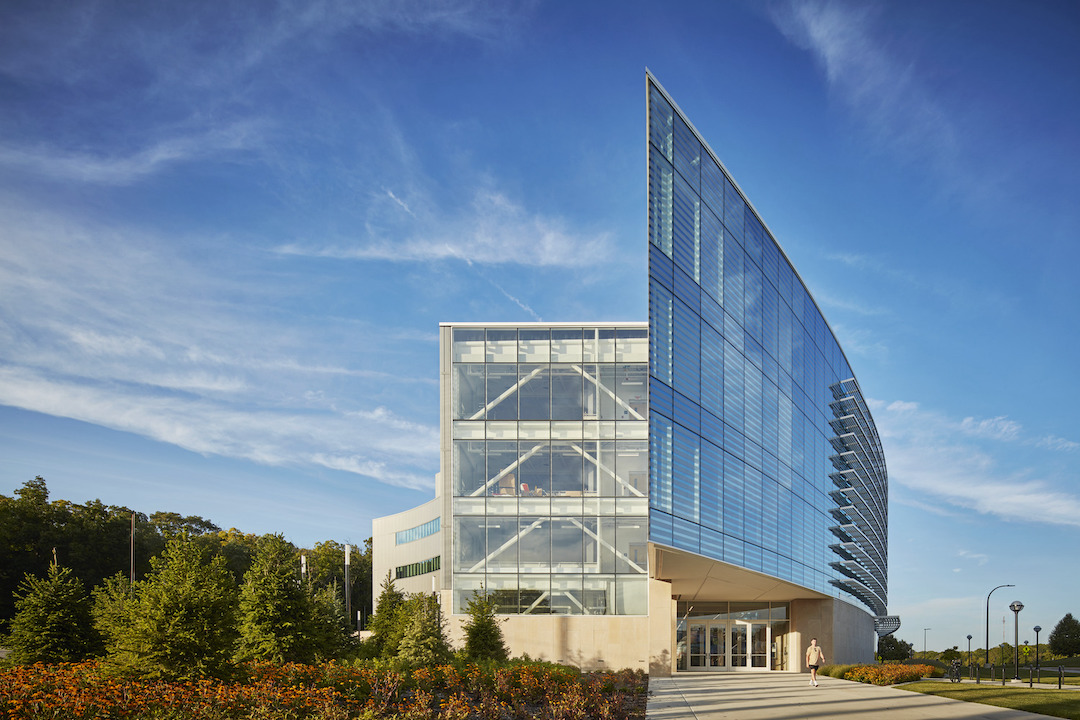
A three-story fly zone allows for the testing of drones and other autonomous aerial vehicles indoors. An outdoor Mars yard was designed with input from planetary scientists at U-M and NASA to enable researchers and student teams to test rover and lander concepts on a landscape that mimics the Martian surface. An AI-designed “robot playground” outdoor obstacle course is designed for testing robots on stairs, rocks, and water surrounded by motion capture cameras. A high-bar garage space for self-driving cars allows for teams to test connected and automated vehicles in urban and suburban environments. Ford roboticists occupy the building’s fourth floor research lab and offices.
The Ford Robotics Building is expected to achieve LEED Gold certification. HED provided architecture, landscape architecture, interior design, and structural, mechanical, and electrical engineering services on the project.
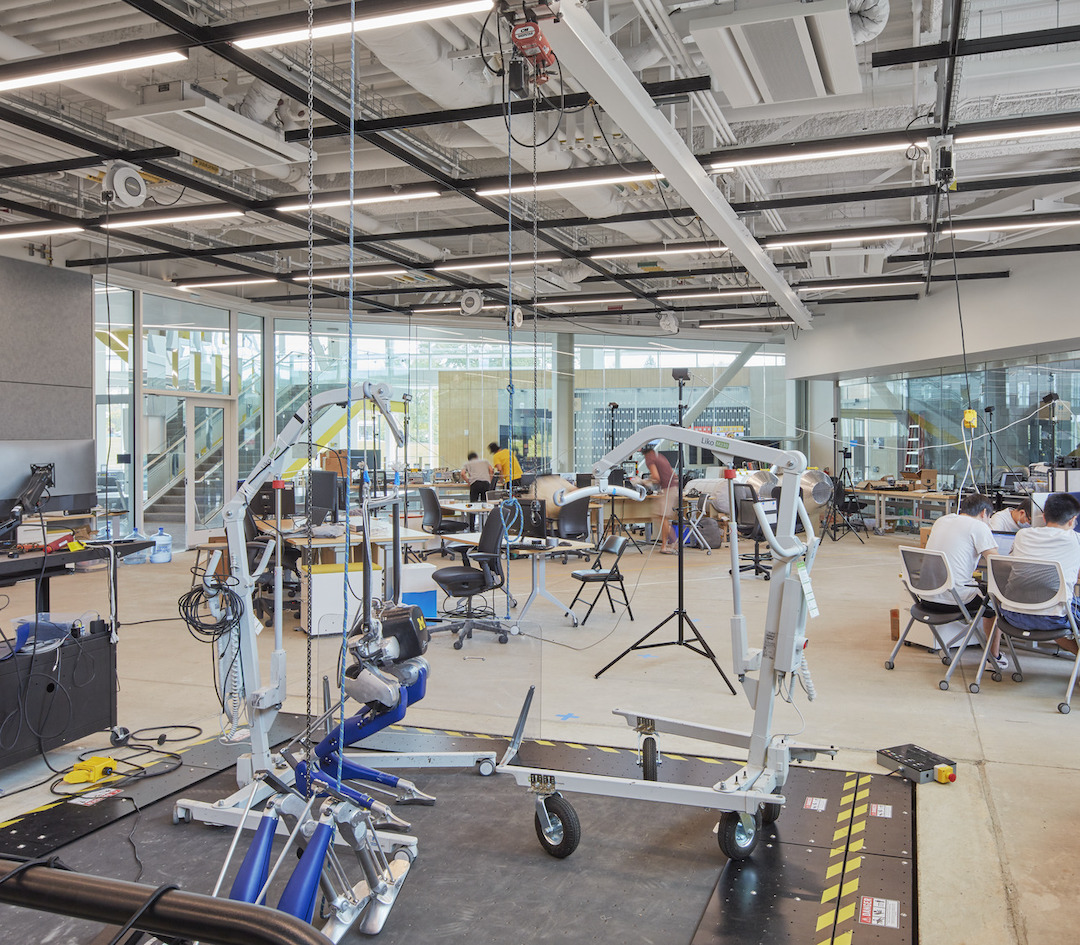
Related Stories
University Buildings | Apr 28, 2017
Suburban Chicago college breaks ground on aviation-themed student center
The design of the center is meant to pay tribute to the university’s heritage in aviation and aeronautics.
University Buildings | Apr 26, 2017
UMass Amherst is home to America’s first CLT academic building
The building brings the architecture, landscape architecture, and building technology departments under one roof.
Sponsored | Ceilings | Apr 17, 2017
University of Toronto Scarborough Campus building meets aesthetic, performance and sustainability goals with Rockfon ceiling systems
The University of Toronto’s $52.5 million, 126,788-square-foot Environmental Science & Chemistry Building is the newest addition to the Scarborough campus in Toronto, Ontario, Canada.
Products and Materials | Mar 28, 2017
Mondopads highlight Portland State University’s new Decision Theater
A total of seven InFocus Mondopads were used in the room to accommodate large group work and individual study.
University Buildings | Mar 14, 2017
Fresh off NCAA national title, Clemson opens plush football operations complex
The 142,500-sf facility, which opened just three weeks after Clemson’s national championship win over the University of Alabama, adjoins the indoor practice facility and outdoor practice fields, consolidating football operations into one complex.
University Buildings | Mar 8, 2017
Massive mixed-use residential village on USC’s Los Angeles campus on schedule to open this fall
Prefabrication of the six buildings’ walls reduced construction time by a year.
School Construction | Feb 26, 2017
A new survey finds education construction activity going strong this year
Surveys of school districts and colleges, though, raise questions about financing for future projects.
University Buildings | Jan 10, 2017
UMass Amherst’s Isenberg School of Business to receive modern, twisted addition from BIG
The 70,000-sf building was developed in collaboration with Boston-based Goody Clancy.
University Buildings | Jan 9, 2017
Massive student housing project in Texas will be ready this Fall
Developers hope the early opening of some units sets the tone for the community and future rentals.
University Buildings | Dec 5, 2016
University of Chicago to open new education center in Hong Kong
The new facility will be named for University Trustee, Francis Yuen, and his wife Rose Wai Man Lee Yuen.


